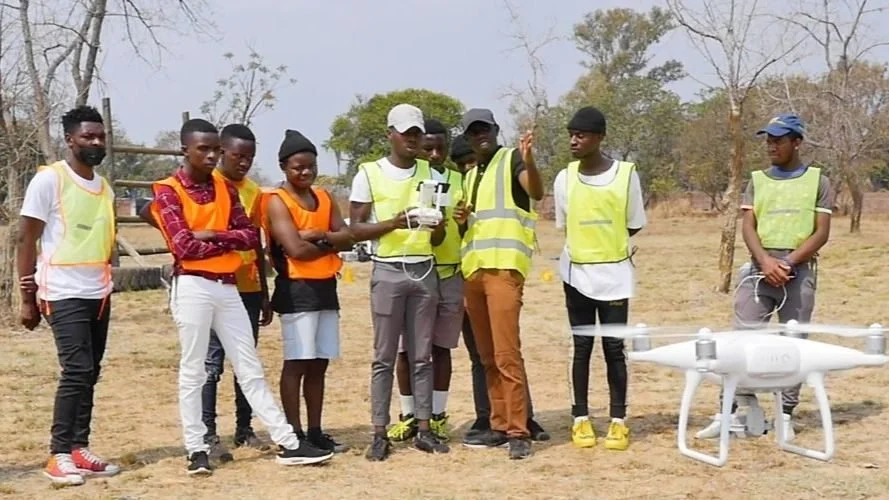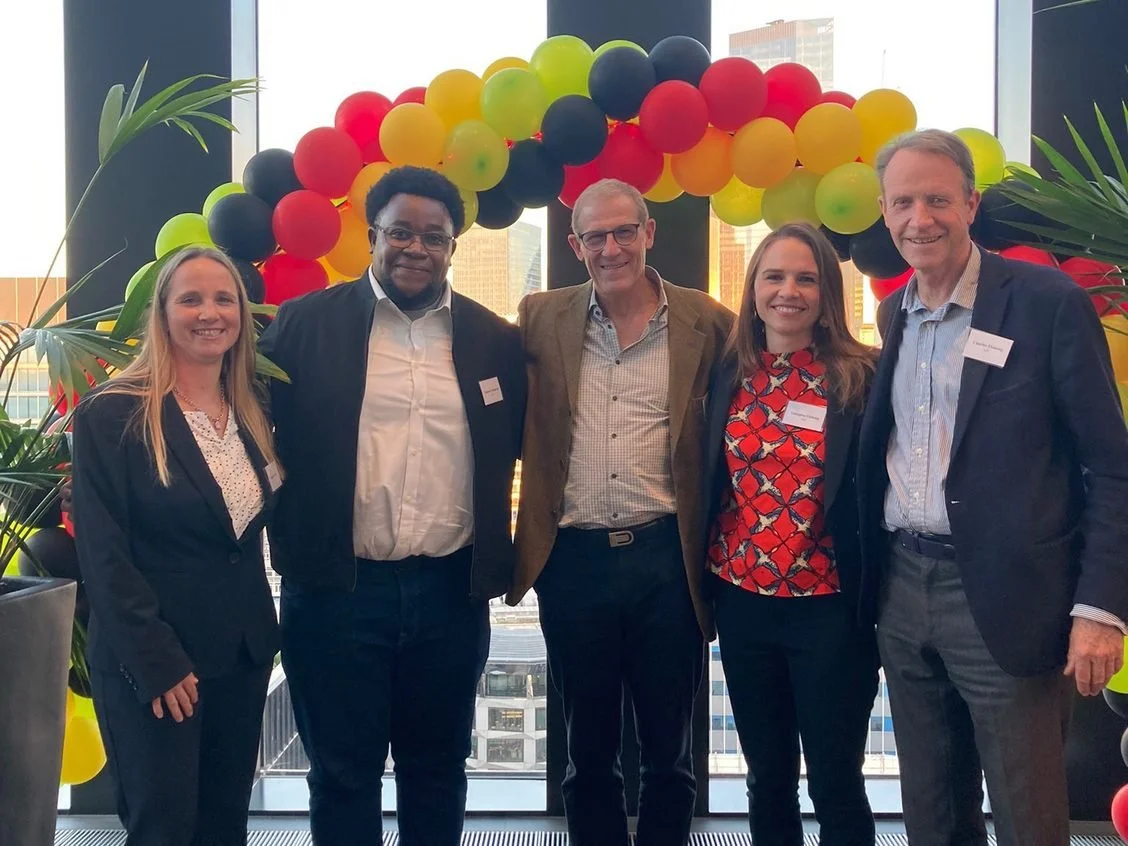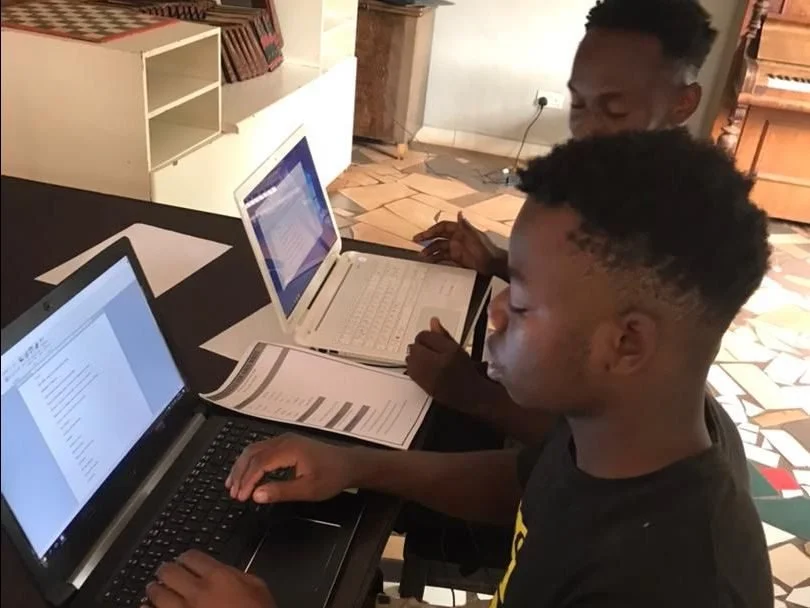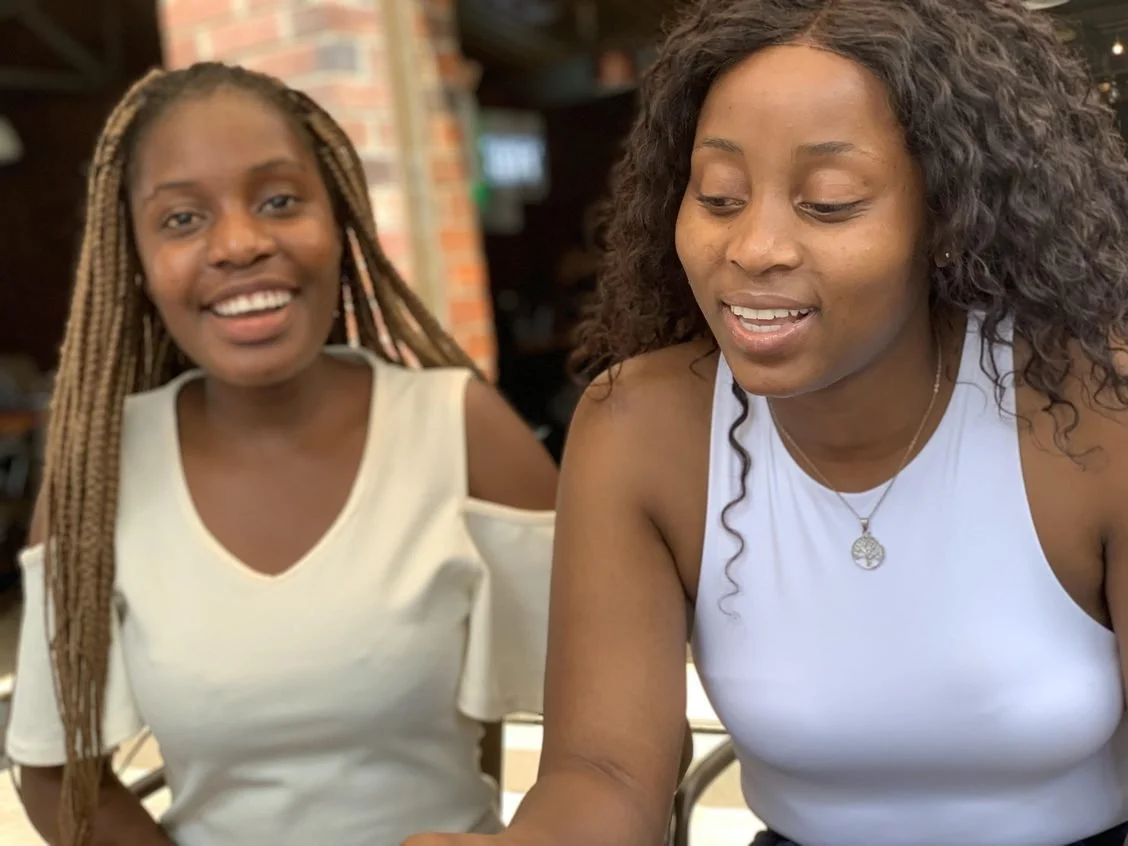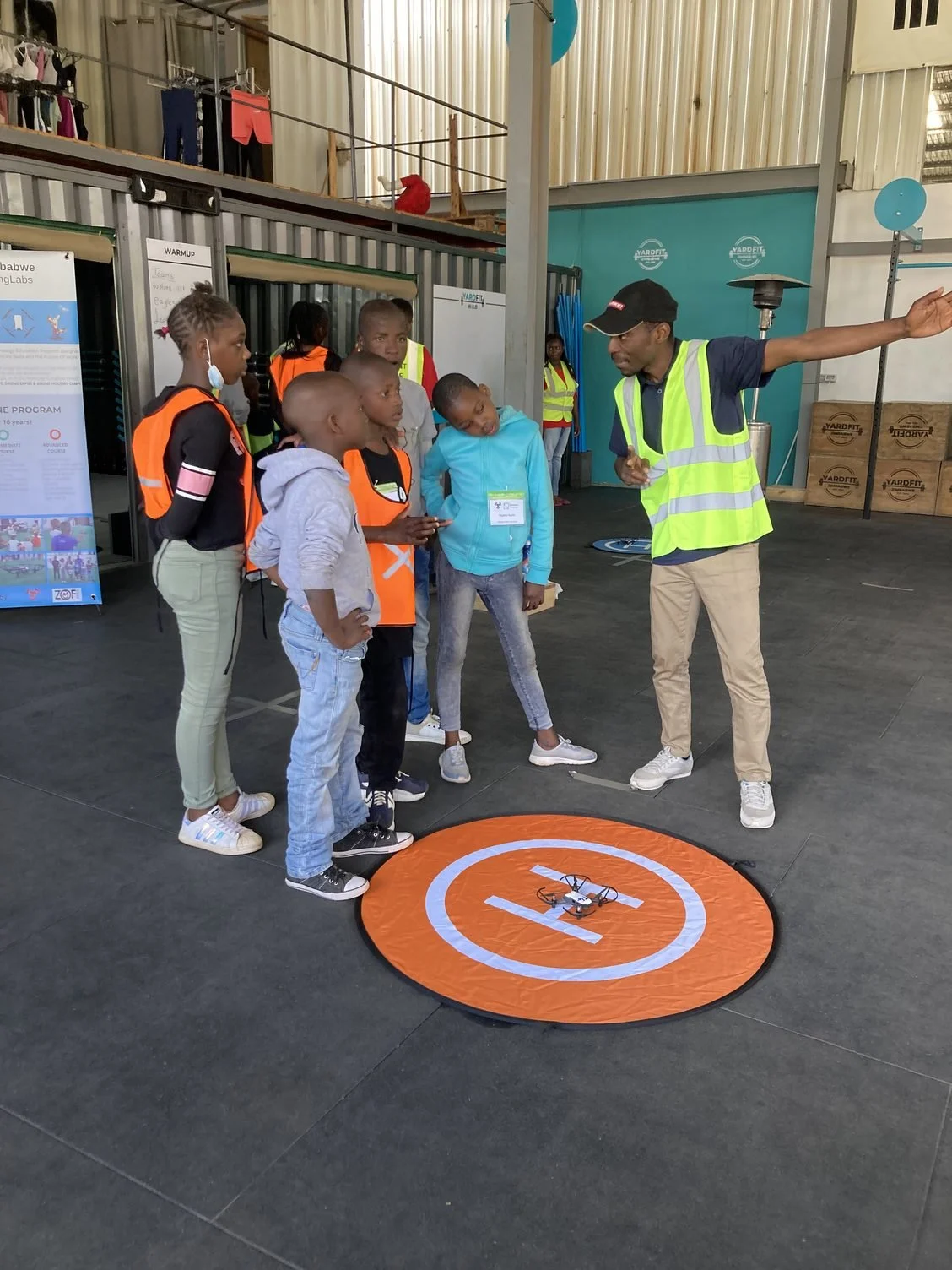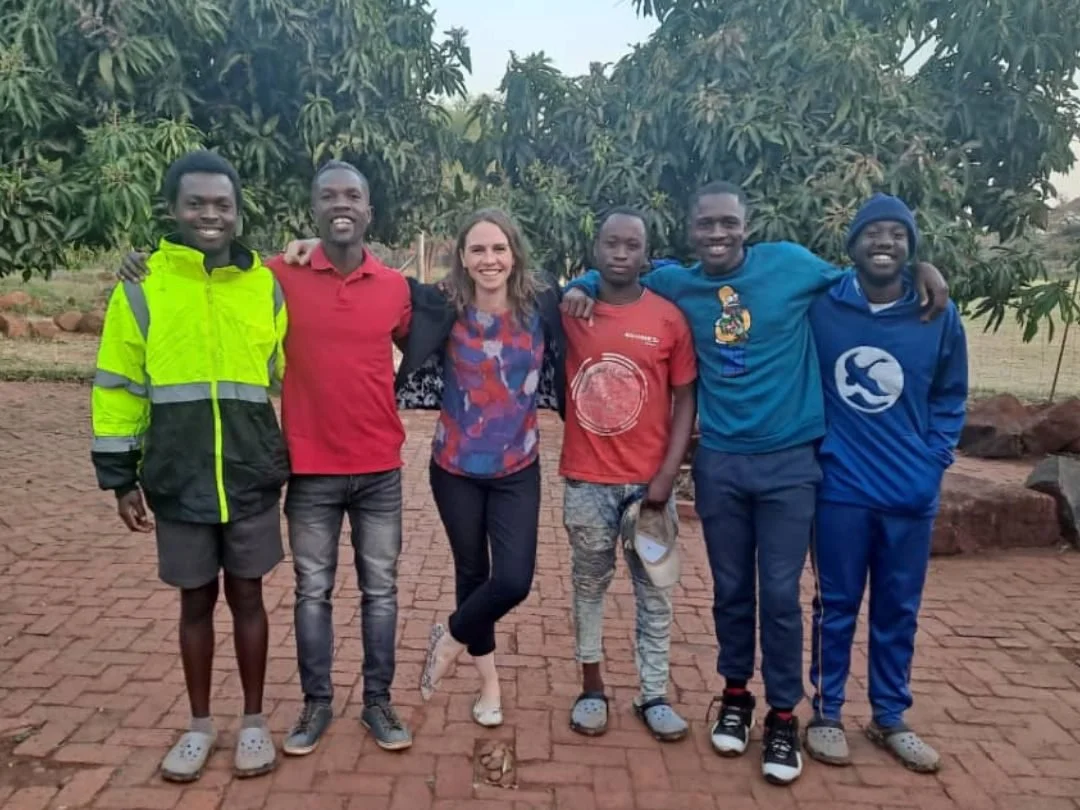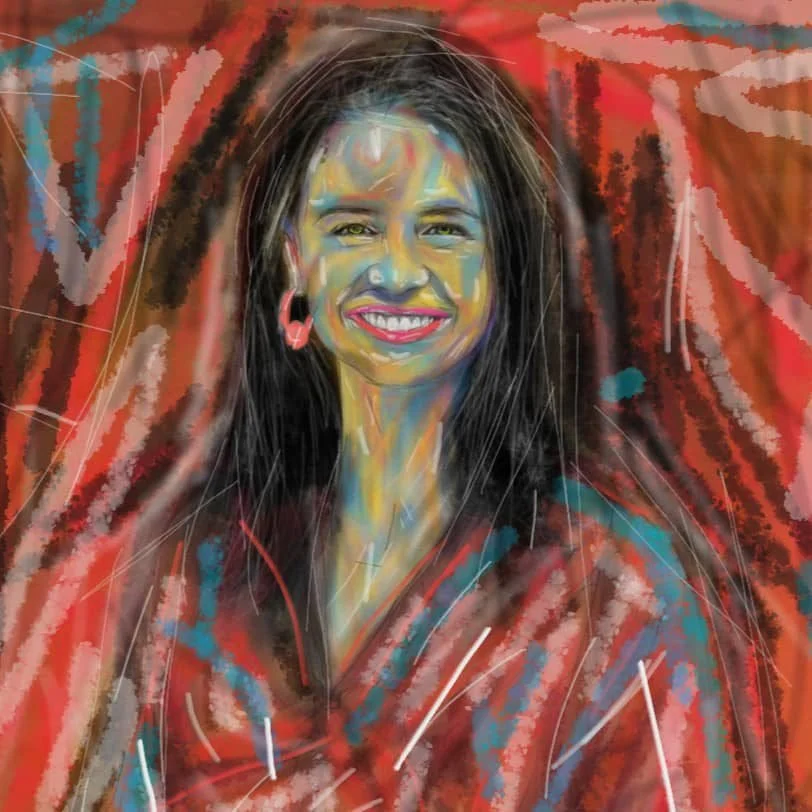2022: Preparing Youths for the Digital Workplace
ZOF – 2022 Review: 37 Trainees in Drones and Coding; 16 Counselling Trainees; 14 Laptops; $25k Raised; New Partnerships; Digital Skills are Key to Inclusive Growth
2022 has been a defining year. We launched our U.K. chapter, and laid the foundations of our digital education programmes for 50 underprivileged young people in Zimbabwe.
You helped us deliver the following impact:
US$25,000 (£20,000) raised in 2022
37 children trained in basic coding, IT systems, robotics and drone-piloting
6 boys piloted a career-counselling programme, led by Makatendeka Mudanganyi, a Zimbabwean entrepreneur and social worker. This inspired bolder ambitions, more effective communications (some of the boys joined their debating clubs), and sharpened their networking abilities to get them job-ready;
10 boys attended an entrepreneurship course, also run by Makatendeka, who introduced the fundamentals of business ideation, and building in an economy with over 90% unemployment
14 laptops to enable teenagers to study, generously donated in the UK by Systemiq Ltd
We also formed an exciting new partnership in Zimbabwe with The Maker Club, set up by a former software engineer (IBM, Econet, AT&T), Simba Mufunde. Simba is passionate about inspiring and educating children in science, technology, engineering and mathematics (STEM). He runs courses for young people to learn coding, robotics, 3D printing, and mechanical engineering in a creative and engaging way (for example, by teaching them to 3D print an entire orchestra, or programme a robots to make jokes!)
Special thanks to two businesses and one band, in particular, that were extraordinarily generous:
Cleary Gottlieb Steen & Hamilton LLP for being our pro bono advisors and for hosting our launch event (see their coverage of this event here)
Systemiq Ltd. for donating 11 life-changing laptops (Systemiq is a leading systems-change firm focused on transforming key climate systems).
Coldplay for donating VIP concert tickets to help ZOF Africa with fundraising
Plans for 2023
In 2022 we prioritised laying the foundations for a robust digital upskilling programme. 2023 will be about scaling our impact to youths from underprivileged backgrounds, with a greater focus on helping them secure jobs or university places.
We focus on digital skills because these are in high demand regionally and globally. Since these skills can be marketed across borders, they offer a promising job market for youths in disadvantaged economies like Zimbabwe, where they face a 90% unemployment rate.
We will aim to onboard new partners in the UK who can donate used laptops. Personal computers remain a critical tool for youths to exercise their digital skills, and for youths to access learning opportunities remotely. Would your company donate their laptops? Please email gfleming@zofafrica.org
Digital skills are key to inclusive and sustainable economic growth
There is a pressing need for Africa to become more connected and develop digital skills.
Currently, only 1 in 4 people in Africa is connected to the internet. This is well below the world average of 2.4 (WEF). In fact, just under half of the world’s unconnected population lives on the continent – 44%, to be precise.
This is a problem for three reasons:
1.Economic development: Africa’s slow rate of digitalisation makes it tough to compete on a global scale.
As the saying goes, “knowledge is power”, and without access to the internet, people have limited access to online information and modes of communication. This stifles innovation and development, and makes it challenging for people to access the job market – especially since today, 80% of all job searches globally are now done online. This is not to mention the limits imposed on workers performing their jobs in an increasingly connected and digital world.
Digitalisation also drives efficiency gains on a country’s assets and yields a higher return on investment (ROI) per dollar invested. For example, automating an industry delivers higher margins than when heavy manual labour is involved. The rise of IoT and AI allows for predictive analytics that result in lower maintenance costs and longer asset lifetime values. Data analytics give deep, current and dynamic sector insights that allow companies to position themselves competitively in the market.
2. Climate goals: digitalisation allows us to do more, with less. In a world of depleting resources, it is paramount to maximise productivity with the limited natural resources at hand. Digitisation can help in nearly all sectors. For example:
Building connections between farmers who can inform themselves about current diseases or seasonal specificities to prevent rather than react;
Applying remote sensing and AI to agriculture to enable precision farming and thereby optimise input use;
Applying water quality sensing to help avoid water pollution, for example from industry dumping toxic water from a manufacturing plant;
Smart grid integration to enable energy efficiency and help deliver power from intermittent renewable power sources such as wind and solar.
3. Social inclusion: Finally, digital access is essential for social inclusion. It connects people to vital services such as online banking and health services; it tracks credit scores to enable borrowing; it creates digital records of people’s birth certificates (still required to secure a job in many African countries). Digitalisation can also be a powerful tool to promote inclusivity for marginalised people, for example by helping employers find minority candidates and levelling the playing field in the assessment phase to minimise human biases when hiring.
But there is not only a need to focus on digitalising Africa as outlined above. There is also a great opportunity. Indeed, there is a large and growing shortage of digital talent worldwide. In sub-Saharan Africa alone, over 230 million jobs will require digital skills by 2030, resulting in almost 650 million training opportunities (IFC). In developed countries, 7 out of 10 job postings in 2019 were in occupations that require digital skills (source). Key skills in demand include data science, digital marketing, and web development.
Digital skills can be marketed across borders. This offers opportunities to upskill talent in countries where there are few job opportunities – Zimbabwe being a perfect example.
Increasingly, job postings for web & app developers, digital marketing support, and data analysis do not require a university degree but instead mastery of the skill, as well as a stable internet connection. As Simba (CEO of The Maker Club) put it: “The 4th industrial revolution will be a decentralised one which bypasses the need to earn degrees at established institutions and work in a full-time capacity for just one company.” This decentralised, remote offering acts as a powerful tool to employ youths from disadvantaged backgrounds who cannot always afford to attend a 4-year university programme.
The cost of internet access in Africa is decreasing: the median price of a gigabyte of mobile data in Africa in 2020 was $5, a 30% drop since 2018 (source). Prices are expected to fall further due to increased capacity provided by undersea cables and satellites (for reference, the median price of a gig of mobile data in the EU was $3.5 in 2020). Falling prices will drive higher adoption rates across key sectors in African economies. Imagine, for example, the multiplier effects of some small farmers earning income in excess subsistence due to their ability to access price data in outlying areas, far from Harare or Bulawayo.
Special thanks to:
Alon Caspi for relentlessly working with various banking institutions to get us up and running in the UK. We couldn’t have accepted donations without him.
Caroline Janin for her significant help in fundraising
Chris Martin & Coldplay, Debra Bisset, Barbara Hewitt, Claudia Zeibe for donating gifts to our UK raffle in September
Claudia Winsauer for conducting a sex ed class for some of our young female beneficiaries
Claudia Zeibe for single-handedly organising the ZOF Africa event from ZOF’s end
Cleary Gottlieb Steen & Hamilton LLP for acting as our pro bono advisors and hosting our UK launch event
Emerald Hill Children’s Home, St Joseph’s Halfway House, The Maker Club, Flying Labs Zimbabwe, and Makatendeka Mudanganyi, for always putting the kids they care for first and gifting them a well-rounded education.
Harsha Agarwal and David Ryder for helping us on communications
John Bizimana for delivering a heartfelt and genuine speech at our launch event
Juma Magwira for working closely with us on the ground to inspire the youths we train and monitor their progress
Linda Matiwaza for gifting her time & talent to revamp our website
Systemiq Ltd for donating their used laptops to benefit the youths we support in Zimbabwe
Takunda Chingonzoh for his excellent speech at our launch event and for agreeing to join our Board of Trustees
Timon Rueckel for fundraising for ZOF and visiting Zimbabwe on a self-funded trip to improve our partnership networks
And YOU for making all of this possible!
UK Launch event generously hosted by Cleary Gottlieb Steen & Hamilton LLP
Students benefit from donated laptops (thank you Systemiq!)
Participants of mentoring programme
ZOF-sponsored drone engineering and piloting course for youths, a fun and interactive way of familiarising them with coding and robotics
Boys at St Joseph’s Halfway House who benefited from entrepreneurship workshops and career counselling
Portrait of ZOF founder Georgina Fleming, done by William currently studying Multimedia Design
